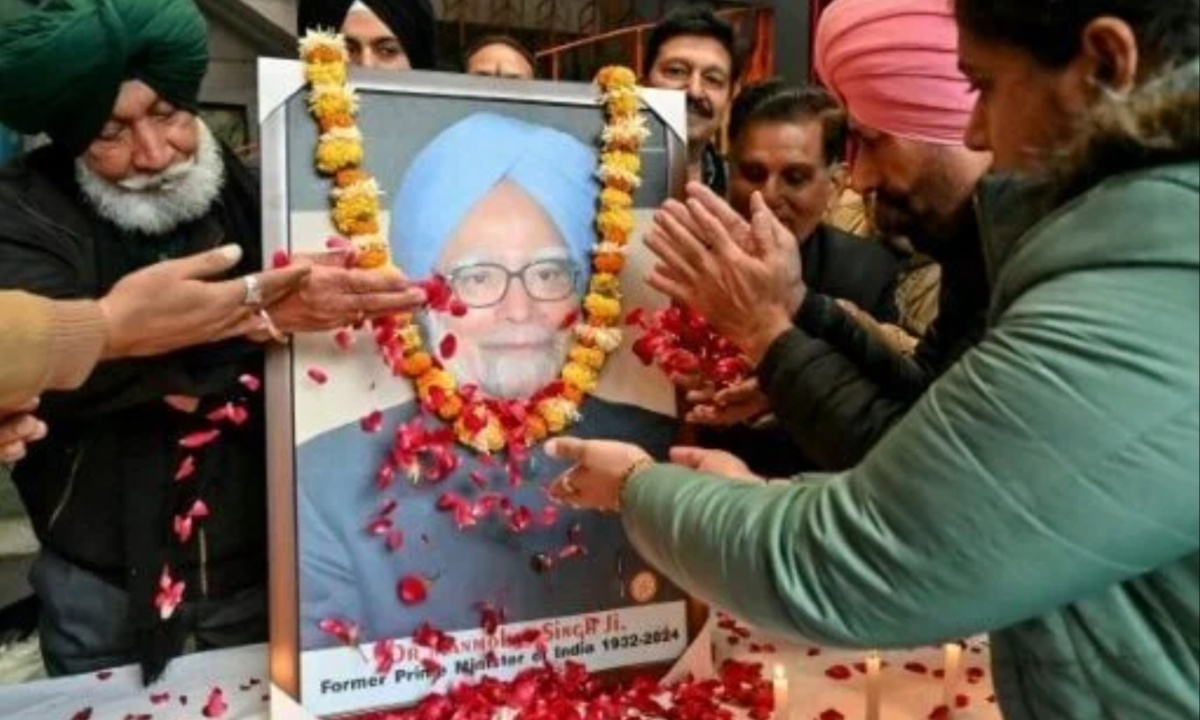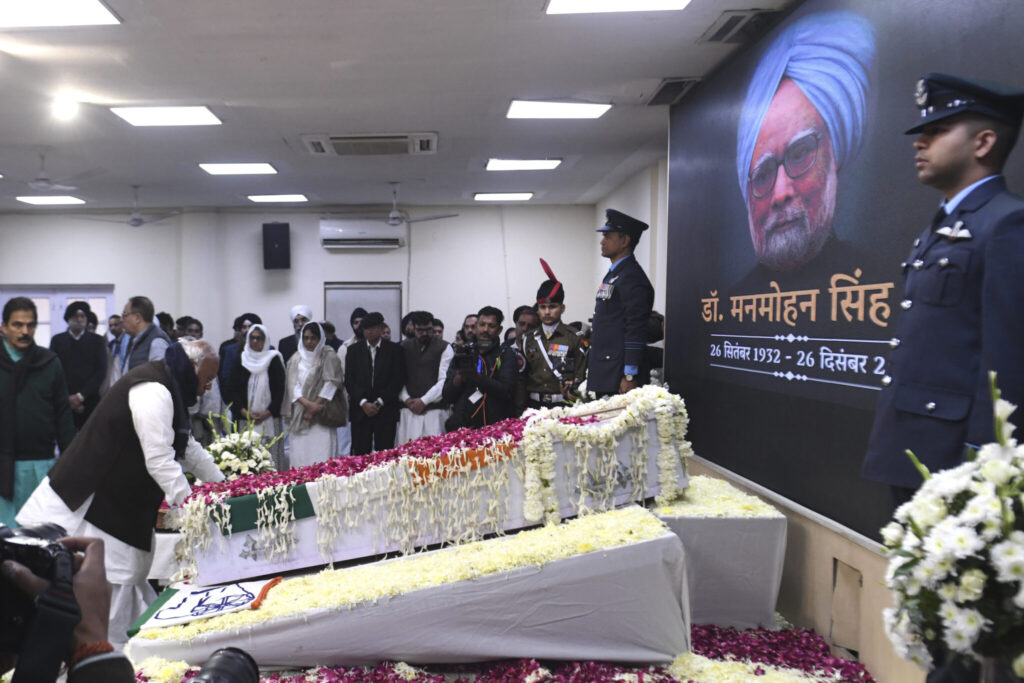India has paid its respects to Manmohan Singh, one of the country’s longest-serving and most influential prime ministers, who passed away at the age of 92. A state funeral was held in Delhi on Saturday, where mourners gathered to honor the former leader. Singh, who served as prime minister from 2004 to 2014, was widely recognized as the architect of India’s economic liberalization, which propelled the nation into a period of rapid growth. Prime Minister Narendra Modi attended the ceremony, calling Singh one of the “most distinguished leaders” in India’s history. His coffin, draped in an Indian flag and adorned with flowers, was carried through the capital with a military honor guard as people lined the streets to pay tribute.
Singh’s economic legacy is one of the cornerstones of his leadership. In 1991, as finance minister, he implemented groundbreaking reforms that opened India’s economy to global markets. These policies are credited with driving India’s growth and lifting millions of people out of poverty. Singh’s famous words in his first budget speech, “No power on Earth can stop an idea whose time has come,” encapsulated his bold vision. As prime minister, he continued to advance those reforms, positioning India as one of the world’s fastest-growing economies and a key player on the global stage.

India Honors Manmohan Singh with State Funeral, Remembering His Economic Legacy and Leadership
At the funeral, Singh was honored with full state honors, including a 21-gun salute. His eldest daughter performed the final rites by lighting the funeral pyre, a poignant moment witnessed by a host of dignitaries, including President Droupadi Murmu, Vice-President Jagdeep Dhankhar, and several members of Singh’s Congress Party. Foreign leaders, such as the King of Bhutan and Mauritius’s foreign minister, also attended, underscoring Singh’s global influence. In recognition of his contributions, the Indian government declared seven days of national mourning following his death.
Prime Minister Modi paid tribute to Singh, recalling their personal interactions and noting his wisdom and humility. Modi praised Singh’s tireless efforts to improve the lives of ordinary Indians. Opposition leader Rahul Gandhi also expressed his deep sorrow, calling Singh a mentor and guide. International figures, including U.S. President Joe Biden, spoke highly of Singh, commending his “strategic vision and political courage,” which were instrumental in strengthening the relationship between India and the United States.
While Singh’s leadership was largely defined by his economic achievements, his second term as prime minister was marred by a series of corruption scandals, which contributed to the Congress Party’s loss in the 2014 elections. Despite these challenges, Singh’s legacy remains strong. He will be remembered for his quiet but effective leadership, his dedication to India’s progress, and his role in shaping the nation’s modern economy. Though his passing marks the end of an era, Singh’s influence on India’s growth and development will continue to be felt for years to come.











































